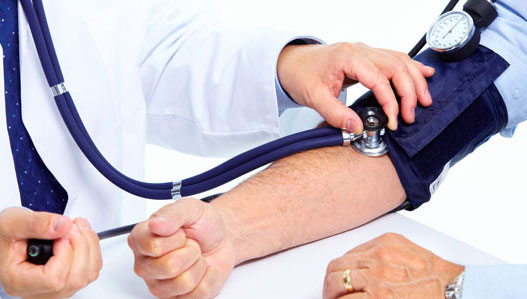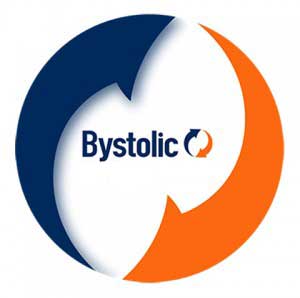
Bystolic (Nebivolol)
Bystolic is medicine that belongs to a group of medicines called beta blockers. Beta blockers are thought to work by slowing the heart rate and reducing how hard the heart has to work. Different types of beta-blockers work differently, but in general, these medications enhance the heart's ability to relax. Your heart will beat slower and less forcefully when beta-blockers are working. This can help to reduce blood pressure and alleviate irregular heart rhythms. Some beta-blockers only work on the heart itself, while others impact the heart and blood vessels. Your doctor may prescribe beta-blockers even if you have few symptoms of heart problems or heart failure. These medications can actually improve the heart's ability to beat.
High Blood Pressure Causes
Changes, either from genes or the environment, in the body's normal functions may cause high blood pressure, including changes to kidney fluid and salt balances, sympathetic nervous system activity, and blood vessel structure and function.
Changes in the structure and function of small and large arteries may contribute to high blood pressure. The angiotensin pathway and the immune system may stiffen small and large arteries, which can affect blood pressure.
Much of the understanding of the body systems involved in high blood pressure has come from genetic studies. High blood pressure often runs in families.
Although there is no specific interaction between Bystolic and the drugs used for erectile dysfunction, they can cause a decrease in blood pressure, which may increase the effect of Bystolic. It is important to talk to your doctor about the use of this combination of medications based on your health status and current medications.
Environmental causes of high blood pressure include unhealthy lifestyle habits, being overweight or obese, and medicines.
Unhealthy lifestyle habits can cause high blood pressure, including: High dietary sodium intake and sodium sensitivity, drinking excess amounts of alcohol, lack of physical activity. Overweight or obese can increase the resistance in the blood vessels, causing the heart to work harder and leading to high blood pressure.
Bystolic as blood pressure-lowering medicine
Bystolic is a good blood pressure-lowering medicine for people with heart conditions, and has fewer side effects than other beta blockers, but it's expensive.

Who should not take Bystolic?
Do not take Bystolic if you:
- Have heart failure and are in the ICU or need medicines to keep up your blood circulation.
- Have a slow heartbeat or your heart skips beats (irregular heartbeat)
- Have severe liver damage
- Are allergic to any ingredient in Bystolic. The active ingredient is nebivolol.
What should I tell my healthcare provider before taking Bystolic?
Before starting Bystolic, tell your healthcare provider about all of your medical conditions, including if you:
- Have asthma or other lung problems (such as bronchitis or emphysema)
- Have problems with blood flow in your feet and legs (peripheral vascular disease). Bystolic can make symptoms of blood flow problems worse.
- Have diabetes and take medicine to control blood sugar
- Have thyroid problems
- Have liver or kidney problems
- Have had allergic reactions to medications or have allergies
- Have a condition called pheochromocytoma (rare adrenal gland tumor)
- Are pregnant or trying to become pregnant. It is not known if Bystolic is safe for your unborn baby. Talk with your doctor about the best way to treat your high blood pressure while you are pregnant.
- Are breastfeeding. It is not known if Bystolic passes into your breast milk. You should not breastfeed while using Bystolic.
- Are scheduled for surgery and will be given anesthetic agents
- Have had acute angina (symptoms include chest pain or discomfort) or an MI (heart attack) as Bystolic has not been studied in patients with these conditions.
Also, to avoid a potentially serious or life-threatening condition, tell your healthcare provider if you are taking or plan to take any prescription or over-the-counter medications, vitamins, or herbal products, including:
- Certain CYP2D6 inhibitors (such as some antiarrhythmics like quinidine or propafenone or certain antidepressants such as fluoxetine or paroxetine, etc).
- Other beta blockers
- Digitalis
- Certain calcium channel blockers (such as verapamil and diltiazem)
- Antiarrhythmic agents (such as disopyramide)
What are the possible side effects of Bystolic?
The most common side effects people taking Bystolic report are headache, fatigue (tiredness), dizziness (if you feel dizzy, sit or lie down and tell your doctor right away), diarrhea, nausea, insomnia (difficulty falling or staying asleep), chest pain, bradycardia (slow heartbeat), dyspnea (shortness of breath), rash, and peripheral edema (leg swelling due to fluid retention). Other possible side effects include masking (hiding) the symptoms of low blood sugar and hyperthyroidism (overactive thyroid), especially a fast heartbeat. Tell your doctor if you gain weight or have trouble breathing while taking Bystolic.

What other information do I need to know about taking Bystolic?
- Do not stop taking Bystolic suddenly. You could have chest pain or a heart attack. If your doctor decides that you should stop taking Bystolic, he or she will lower your dose slowly and over time.
- Take Bystolic every day exactly as your doctor tells you. Your doctor will tell you how much Bystolic to take and how often. Your doctor may start with a low dose and raise it over time.
- Do not stop taking Bystolic or change your dose without talking with your doctor.
- Bystolic can be taken with or without food.
- If you miss a dose, take your dose as soon as you remember, unless it is close to the time to take your next dose. Do not take 2 doses at the same time. Take your next dose at the usual time.
- If you take too much Bystolic, call your doctor or poison control center right away.
Bystolic Dosage
Bystolic comes in tablets of 2.5 milligram (mg), 5 mg, 10 mg, and 20 mg, which you should take once a day. You should not take more than 40 mg of Bystolic in one day. Bystolic tablets can be taken with or without a meal. Beta blockers work to slow the heart and decrease the amount of blood that is pumped. This action helps to decrease blood pressure and the amount of work the heart has to do. For more specific information, consult with your doctor or pharmacist for guidance based on your health status and current medications, particularly before taking any action.
Bystolic Upsides:
- Controls your heart rate to reduce work for your heart.
- A first-line treatment for heart failure and heart attack.
- Helps to lower blood pressure if you can't use first-choice treatments or need additional blood pressure control.
- Many beta blockers can worsen asthma or cause headaches, but Bystolic usually doesn't because it targets the heart more specifically and causes fewer side effects.
Bystolic Downsides:
- Not available in less expensive generic form.
- Taking a beta blocker might make you feel more tired or out of breath during exercise or normal daily routines. This gets better for most people, but for some might not go away.
- Can hide symptoms of low blood sugar if you're diabetic.
- You can't miss doses. Stopping Bystolic suddenly can cause your blood pressure to go up suddenly, which raises the risk of heart attack and stroke.
How To Get Bystolic?
Bystolic is a prescription medicine. The generic formulation of Bystolic, Nebivolol, has recently been released. Nebivolol is FDA-approved for the management of hypertension. The generic formulation is now available for all strengths of Bystolic (2.5mg, 5mg, 10mg, 20mg) from few manufacturers. Nebivolol (Bystolic) is an expensive drug used to treat high blood pressure. This drug is slightly less popular than comparable drugs. The lowest price for the most common version of generic Bystolic is around $1.08 per pill, 80% off the average retail price. We gather prices and discounts from multiple sources, including published price lists, drug manufacturers, claims information and data provided to us by pharmacies. The prices we show are our best estimate; while we believe our data to be generally accurate, we cannot guarantee that the price we display will exactly match the price you receive at the pharmacy. For an exact price, please contact the pharmacy.
